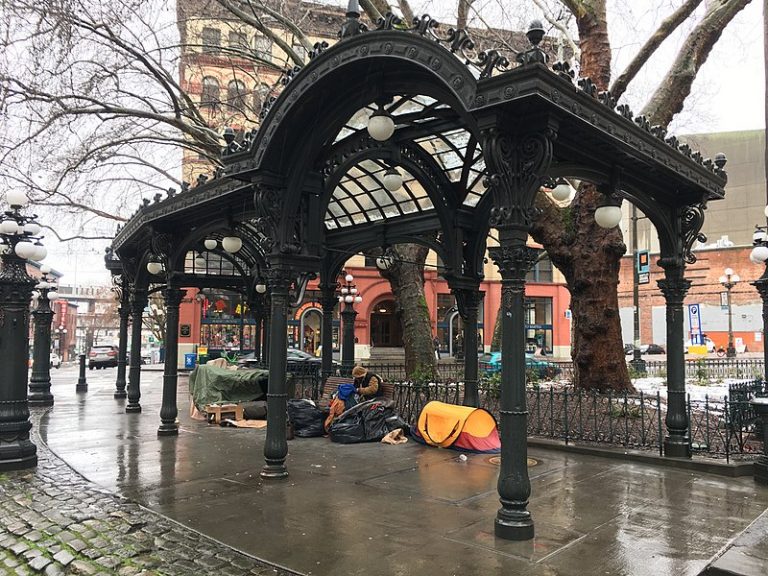Published on January 16, 2021

A recession following the coronavirus pandemic could cause twice as much homelessness nationwide as the Great Recession did more than a decade ago, says a grim study released Tuesday by Economic Roundtable, an L.A. research group.
Using detailed data on unemployment and homelessness from L.A. County social services, authors of the study project that people at the “thin edge of the labor market” — restaurant employees, temporary workers, seasonal labor — are in particular danger of drifting into homelessness in the coming years as the economy recovers.
Daniel Flaming, the president of Economic Roundtable, said though the report uses L.A. data, the pandemic recession will likely have long-term effects in Seattle and other major cities.
“I would think it would be very harsh, because the tech sector in Seattle supports another sector of people who provide face-to-face services — your restaurants, your bars, your nail salons, your gyms,” Flaming said. “Those sectors have been devastated.”
By 2023, the number of people who’ve lost work and become homeless as a ripple effect of a pandemic-induced recession could tip over 600,000 beyond current numbers, doubling the last nationwide count, which was roughly 568,000 in January 2019.